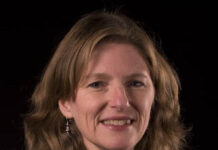Everyone remembers where they were and what they were doing when they found out about the hate-motivated attack on a professor and her gender studies class on UW campus. Whether you were on campus with friends, teaching a course, or grading papers, the effects of the attack were felt throughout the community. The attack begged the questions: Why did this happen? Are students safe on campus? How can we prevent students’ safety from being violated again? This made WUSA’s Representative Survey Platform (RSP): Student Safety Report much more important this year.
The report captured perspectives from 606 students on how safe students feel on campus, areas of improvement for campus safety, the impact of safety on students’ mental health, and ways to make a more inclusive UW community. Fifty-one per cent of the participants did not identify as racialized and only 2.04 per cent of the respondents were from the Kitchener campus and 0.51 per cent from the Cambridge campus.
To start, the report showed that the stabbing in June 2023 still weighs on students’ minds as it was mentioned in several responses throughout the survey. Additionally, students who identified as having a disability and students grouped as gender nonconforming seemed to feel less safe on campus and agreed less that UW is providing a secure environment for students. These findings were echoed by Charley Potter, a 4A psychology student who identifies as non-binary. “The attack last year destroyed me,” Potter said. “I was emotional and paranoid for months and considered detransitioning entirely. That sort of life-or-death fear takes a serious mental toll, and I wasn’t even in the building when it happened.” Potter also feels similar levels of safety as reflected in the report. “For the most part, I feel fairly safe on campus during the day. I have no trouble believing that [gender non-conforming people feel less safe at night than cisgender men.] Night is already the most risky time to be out and about, especially if you’re alone.”
Additionally, students generally feel less safe at night, with 40 per cent feeling safe only 6 per cent feeling very safe. In contrast, during the daytime, 49 per cent feel somewhat safe and 47 per cent of students feel very safe. This is no surprise to Nick Pfeifle, a recently graduated engineering student and WUSA’s current president. “Parking lots are often a hotspot for feelings of worry and distress,” Pfeifle said. “The part that I’m glad to see, and a little bit surprised about, is how much students have bounced back from the feeling of loss of safety since Hagey Hall.”
This was echoed in the safety report as only one per cent of students feel unsafe during the day and most students feel either very safe or safe accessing various WUSA programming and spaces. WUSA programming and services are key elements in increasing campus safety. The SLC and the turnkey desk remain open 24/7 all year round to help students, and student-run services such as the Women’s Centre, the Glow Centre, RAISE, and MATES provide peer support and events to connect the UW community.
A key safety measure that WUSA is working on implementing to fill safety gaps is the Walksafe program which was discontinued in 2010 due to operating costs. The Walksafe program is a program where students can contact the program to get someone to safely walk them home or to another location if they’re feeling unsafe or if it’s nighttime. “Waterloo is the largest school in Canada that doesn’t have a walk-safe program or a foot patrol program,” Pfeifle said. “We are excited about bringing it back and we’re talking with the university about working collaboratively because it is something that is in all of our interests to include. Now it’s the trouble of functionally having to build it from scratch.”
While the planning phase for the Walksafe program is lengthy — it won’t be completed this year — Pfeifle is hoping he can “set up future presidents to be able to actually cut that ribbon [and] get it going again.” However, not everyone is as eager to get this program up and running. “I think [it] could be beneficial to some students, although I’m not sure I would use it,” Potter said. “I’d want to know and trust the person walking me home and knowing my transit routine. It may seem paranoid, but my life depends on it.”
Walksafe staff will need to receive proper diversity training for minority groups to ensure students can trust walking alone with them. “Unfortunately, safety on campus is a very gendered issue,” Pfeifle said as he hopes WUSA can aid in tackling this gendered issue and other grievances that non-binary folk have. In the WUSA safety report, students suggested implementing workshops and educational seminars to develop a positive university culture that supports and celebrates diversity in gender, sexuality, religion, race, and culture. Potter agrees with this idea in that “better training for staff, faculty, and students on diversity, equity, and inclusion can help foster a more accepting and understanding campus environment — the call is coming from inside of the house and it needs to be answered.”
Gender non-conforming people are a minority on campus and there was a spotlight on them and their experience after the hate-motivated attack at Hagey Hall. “Regardless of if I’m dressed feminine or not, I’m misgendered all day every day. It hurts, obviously, knowing that some people think I don’t deserve this basic sign of respect just because I express myself beyond the measly scope of the gender binary,” Potter said. “It can also be a risk if the person I open up to [about my identity] doesn’t ‘believe’ in my identity or even wants to hurt me for it.”
This fear is evident in the safety report as students who identify as having a disability and/or gender non-conforming are less likely to agree that their values are respected on campus, that they feel they belong on campus, or that they can be their authentic selves on campus. Non-binary folk have even been taking precautionary measures that compromise their identity to stay safe. “Since the attack at Hagey, I’ve ‘regressed’ to dressing feminine, the presentation expected of me, so as to not stand out as much as a queer person or a target of hate,” Potter said.
To try and combat these issues and make non-binary people feel more at home on campus, WUSA is pushing for connections between faculty and students to have larger support networks, as well as delivering specific gender-affirming care for those who are looking to transition and for non-binary people. “I’ve been talking a lot with campus wellness… I’ve talked to a bunch of insurance people about it,” Pfeifle said. “It’s been a challenge, but it’s something specific that we’ve been targeting… Not only did we have a sense of obligation, but also because we understand how important it is to our campus community.”
While strides are being made to improve inclusivity, students are urging UW to improve physical aspects of the campus to increase safety as the current decisions such as increasing security presence and cameras received negative feedback. “It’s not a strict benefit that I think the university is interpreting it as, and now it’s not just a safety measure that they’re using it for,” Pfeifle said. “Increasing surveillance on campus, where we do have a sizable portion of students that are very off-put by increased police presence and by security cameras, especially for those in our marginalized community.”
The university has also been developing a new system to replace the WatSAFE app and improve safety, but that is coming at the cost of privacy. “[The] new system they’re bringing in includes some tracking measures that I’m not a huge fan of… I think that the loss of privacy is more impactful to students than the gain,” Pfeifle said. “Location and work and athletic permissions it asks for, that makes me very uncomfortable… I would push back on the new app being mandatory.”
Additionally, as some of the blue safety button poles on campus have stopped working, Pfeifle encourages the university to implement more of the blue poles throughout campus, as well as lighting up more pathways on campus.
The final key aspect of the RSP Student Safety Report was the impact of safety on students’ mental health. While 81 per cent of students reported that safety concerns did not impact their mental health, it is lower for those with disabilities, BIPOC, international students, and those identifying as gender non-conforming. Additionally, students reported lower satisfaction with UW counselling services and Empower Me, but high satisfaction with MATES, the student-run service.
Fortunately, the waitlist for UW counselling services has decreased to almost zero, and MATES and clubs are working to fill the gaps regarding safety and mental health. “Peer-to-peer services can be very effective. They’re not a silver bullet, but they are a great way of supporting people,” Pfeifle said. “I’m not gonna try and pretend that WUSA is doing it solo because it has been largely our clubs who have been individual advocates and have gone out to the region to really push hard for transit to continue later at night and to have routes that matter to students.”
MathSoc, the NDP Club, and the Climate Justice Club were a few examples of clubs that have been strong advocates for helping the city recognize that the day doesn’t end at 10 p.m. An emphasis on sexual violence prevention and first-aid training has also been implemented by WUSA to ensure SLC staff and students in societies are properly equipped with the tools to support UW students. Overall, campus is becoming a safer place for students and there are diverse groups of people working to make this happen. “Allyship is generally on the rise,” Potter said. “By feeling safe on campus, stress and anxiety are alleviated and we can focus more on ourselves and what we came to school for: to learn.”






























